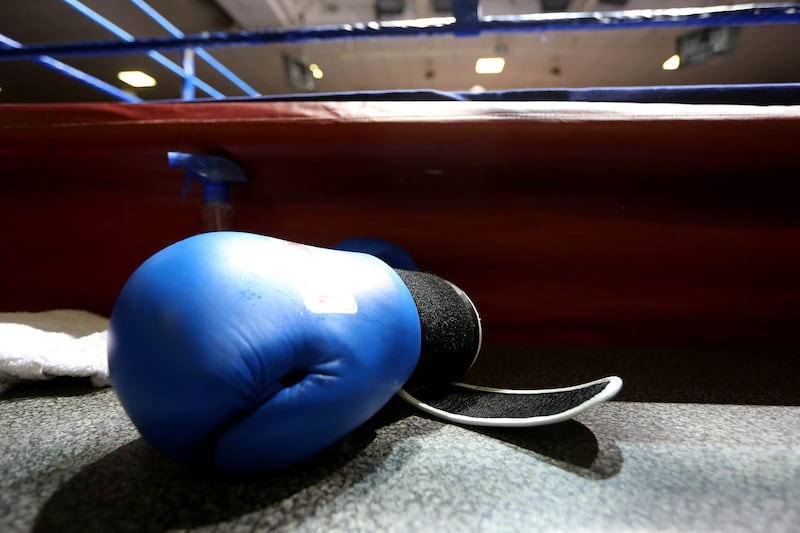Galway nurse Aoife Commins believes that as a white, heterosexual woman who is knowledgeable about sexual health, she is an example of how becoming HIV-positive can happen to anyone.

She was diagnosed when living in Australia in 2020. She and her new male partner at the time had taken routine tests for sexually transmitted infections (STIs), including HIV, and had both received negative results. But it was only after a random decision to go to donate blood together, coincidentally on the same week in May that they had unprotected sex for the first time, that they learned all was not as it seemed.
Several days after giving blood, the clinic rang him to say he needed to come back in as he had tested positive for something. That “something” was HIV, the human immunodeficiency virus, which attacks the body’s immune system. Aoife was advised she could take post-exposure prophylaxis (PEP) medicine to try to protect herself from becoming HIV positive too, even though it was past the 72-hour window for starting it for the best chance of effectiveness.
“I was on that for a month and had to kind of wait nearly two months to get diagnosed, so that was kind of torturous,” says Aoife, now aged 29. Initially, she was told she was negative, but she had read online that people should be rechecked about six weeks after stopping PEP. Despite becoming really unwell, “obviously the virus just built up in my system after stopping taking the medication”, it took several visits to a Sydney hospital before a doctor agreed she should be retested for HIV and she was finally diagnosed positive in July 2020.
RM Block
As the couple looked at how this could have possibly happened, it turned out he had tested about two weeks after being with his previous partner but did not know, and was never told, that it can take six to eight weeks after exposure to HIV to test positive. So he should have gone back for a follow-up check. Instead, he presumed a negative result meant he was clear, “so when we were seeing each other he was unknowingly positive and we had no idea, so that’s kind of how unfortunate it was that I got it”.
But she regards as very fortunate that their decision to donate blood led to early diagnosis. After the initial shock, Aoife knew that although HIV is not curable, it is now a treatable condition and she could expect to live a long and healthy life with it. However, she did fear the stigma she might face.
Antiretroviral medication stops the virus replicating in the body, allowing the immune system to repair itself. Once the viral load is suppressed to undetectable levels in the blood, it is untransmittable to sexual partners. “U=U” is shorthand for the assurance that once a person with HIV is on effective treatment, they cannot pass the virus on to sexual partners.
Yet, just more than 70 per cent of Irish adults do not know that, based on findings of a survey conducted at the end of last year (2024). Aoife’s father, Pat Commins, would have been one of those when she first told him of her diagnosis, after returning home to Galway from Australia.
Sitting alongside Aoife for an Irish Times interview by video link from their home in Barna, he recalls his initial distress. Images of 1980s adverts relating to HIV and Aids, “with the tombstone”, flashed into his mind. They are giving their perspectives as father and daughter to mark the start on January 14th of an HSE campaign, “You, Me and HIV”, in which they feature, to address misconceptions around the condition.
During that first conversation with Aoife more than two years ago, Pat’s view of HIV was still coloured by the 1980s and 1990s when there was no effective medication to prevent the virus progressing to Acquired Immunodeficiency Syndrome (Aids) and development of fatal illness as a result. Pat, as a hospital manager, was aware there had been medical advances, but did not know the extent of them. Instead, full of concern about what HIV might mean both personally and professionally for his daughter, he says “my first reaction was, ‘oh my God, how serious is this?’”.
Aoife had wanted to tell her parents earlier, but her now ex in Australia did not want her sharing news of her positive HIV status. As it was inextricably part of his health story too, she was conflicted. “Anytime I did tell a friend, then I felt really guilty and it was just this big, horrible mess I was in.”
But after her mother Mary came across the HIV medication in her daughter’s bedroom, it was a relief when she asked Aoife about it while they were out for a walk. “I explained everything to her. We were kind of a bit worried about telling Dad; we knew he would be a little bit more upset.”
Her mother offered to break the news to him, but “I didn’t want to be a coward”, says Aoife, who did it herself when Mary was out.
She recalls his anguish, thinking it was a life-threatening illness and asking her how could it have happened. Despite trying to reassure him that she would be fine, “he was not really taking in what I was saying”.
In the end, she suggested both he and her mother go talk to the nurse specialist in her treatment clinic. “They went in and spoke to her and they came out relieved. I think they just needed to hear it from someone else.”
The daily medication that Aoife takes also ensures that if she wants to have children, there will be no transmission of the virus to the baby during pregnancy.
She believes parents hearing of a son or daughter becoming HIV positive need space to digest and come to terms with the news. “What I always say to people who are afraid to tell their family and friends is, just give it time, it’s not going to be this big issue forever.”
Consultant in genitourinary medicine Prof Fiona Lyons, who is medical director of the HSE’s Sexual Health Programme, sees evidence of persistent stigma and misconceptions around HIV in her day-to-day work. A big concern is that more than a third of new cases in Ireland are diagnosed late. Individuals’ fear about knowing their HIV status and testing for it are factors that delay people coming forward, says Lyons.
“HIV is just another condition that can be managed and that anyone can get. The virus doesn’t discriminate, so why people who are living with HIV are subject to discrimination and stuff like that, I really don’t understand.” An estimated 8,000 people are living with HIV in Ireland, including some who do not know and others who know but are not receiving healthcare for it, she says.
Regardless of whether or not a person is on treatment, HIV is not passed on from kissing, or from using the same cups, plates, forks or toilet seats. You can’t get HIV from shaking someone’s hand or giving them a hug.
Latest data from the Health Protection Surveillance Centre, issued in December, reports a total of 911 HIV diagnoses in Ireland in 2023, representing 17.7 cases per 100,000 population. This is up from 527 diagnoses, or 11.1 per 100,000 population, when compared with the pre-pandemic year of 2019. However, the majority (61 per cent) of the 2023 diagnoses were in people already known to be living with HIV, for example if they had come from abroad and were having blood tests here for the first time. Another 20 per cent had unknown history, while 19 per cent were people diagnosed with HIV for the first time. That last figure is equivalent to 3.4 cases per 100,000 population, down 15 per cent when compared to four cases per 100,000 population in 2019 (although it is a marginal increase on 2022′s corresponding rate of 3.3).
I feel like I took my power back from my diagnosis
Of the 173 first-time diagnoses in 2023, nearly two in five (39 per cent) were diagnosed late. This means their level of CD4 cells, which are hijacked by the virus to replicate itself, leaving the person more prone to other infections, was markedly low (less than 350 per millionth of a litre).
“I think there are multiple different ways we need to address that [rate of late diagnosis],” says Lyons, “including making the testing available to people in different ways.” As a HIV physician, she believes one of her roles is to raise more awareness among fellow health professionals of possible indicators of the condition – in the early stages these can include headaches, fever, fatigue, sore throat, muscle pain and a rash – and when to offer a test.
People who prefer not to attend a GP or public sexual health clinic, can use the HSE’s free home-testing service (see sexualwellbeing.ie), which Lyons describes as being “a real game changer”. There are also peer-led initiatives in the community that offer free rapid tests in various venues and bars. The maternity services offer HIV testing to all pregnant women.
“I see it as a jigsaw puzzle of different settings and, put together, they give the framework that we need.” Everybody has an HIV status, she points out, and everybody deserves the opportunity to know what it is. “Everyone who’s living with HIV deserves the benefits of treatment and not to be judged for the fact that this virus didn’t care who they infected.”
Ireland is aiming at a zero rate of new HIV diagnoses by 2030. Lyons sees this new HSE campaign, aimed at debunking some of the myths and stereotypes by featuring real-life stories, as another step towards that.
Media attention is a novel experience for Pat but Aoife decided to talk publicly in 2023 about being HIV positive on the Poz Vibe podcast, hosted by Robbie Lawlor and drag star Veda, and to share it on social media. Aoife’s parents, having initially thought only people with HIV would be listening to the podcast, definitely got a bit of a shock, she says, when she told them she would also be putting it up on her Instagram account.
“They were kind of worried what would people think and Mum, especially, was really worried that I was going to get online abuse and stuff.” In fact, the reaction was “99.9 per cent love”, says Aoife, “and again reinforced that this is the right thing to do”.
Pat says he and Mary got a similar reaction, with friends contacting them to express admiration of their daughter’s bravery and what she was doing to advocate and educate. “It was actually reassuring and I suppose it kind of took away some of the ..., I call it ‘trauma’ for want of a better word, or stigma.”
While as parents they had already been reassured about Aoife’s health, they did worry what impact going public might have on her work as a nurse in Galway University Hospital. But senior colleagues proved to be very supportive; it led to a new job for her in infectious diseases and she has been given leave to do various pieces of advocacy work since.
When Pat was asked to join her in the spotlight for this campaign, he did not hesitate. “If Aoife has been out there and done so much, the least I can do as a dad is to support her. I’m very proud of her.”
Meanwhile Aoife’s current partner, a Donegal man, was totally understanding when, “after a bit too much to drink”, she explained during their first date about being HIV positive. “It didn’t faze him at all.”
One and a half years on, the couple are house-hunting.
In shrugging off her early fears of stigma and starting to talk about HIV, “I feel like I took my power back from my diagnosis”, Aoife adds. “I’ve actually become so much happier and so much more myself. It all worked out in the end.”
- Sign up for push alerts and have the best news, analysis and comment delivered directly to your phone
- Join The Irish Times on WhatsApp and stay up to date
- Listen to our Inside Politics podcast for the best political chat and analysis


















